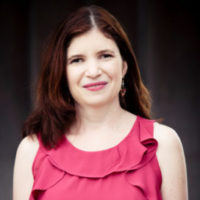Teaching
To help students master theoretical concepts, I cultivate their interest in covered topics by showing how those issues affect the students’ present and future choices. My course, The Political Economy of National Security, balanced readings on the principles of economic exchange and security with articles on the contemporaneous debates over specific policies, such as the efficacy of sanctions, trade protectionism, and energy security. Lectures and assignments linked these topics to current events, for instance, President Trump’s decision to withdraw from the Iran agreement (AKA the Joint Comprehensive Plan of Action). Moreover, I continuously strive to improve the effectiveness of my teaching with course designs that apply new methods to motivate students, expand upon those elements that have been previously successful, and replace or modify the components that did not positively contribute to the learning process. For example, I have moved away from in-class exams to take-home essays, because I have found that the latter results in greater student effort and better aligns with my goal to build critical thinking skills.
My goals as an educator go beyond the mastery of course topics to preparing students for their future careers and civic participation. In particular, I can relate to the challenges first generation college students face, having myself grown up in Arkansas to young, high school educated parents. Making students aware of career resources and opportunities to study abroad can help enrich their undergraduate education. Moreover, I also prioritize instilling the value of diversity. My experience living and conducting research in South Korea, the Netherlands, and Colombia, as well as collaborating with international colleagues has enhanced my interactions with UCLA’s disparate student body. Class discussions have been important in teaching students to appreciate the benefit of multiple perspectives provided by themselves and their classmates in order to better understand covered topics.
The classroom is just one part of the scholastic experience, and I would welcome the opportunity to facilitate other educational activities. My commitment to extracurricular endeavors is rooted in the importance they played in my own educational development. As an undergraduate at Hendrix College, I was an active participant in campus life. Having been an eager and successful participant at Model UN from middle to high school, I was disappointed as an undergraduate to discover this program did not exist at Hendrix. With faculty support, I started their current program, which has frequently won awards at the national level, including best delegation at the American Model United Nations in Chicago.
My research spans the topics of international political economy, national security, and foreign policy with regional expertise in East Asia and Latin America. This background enables me to teach a wide variety of classes in International Relations and Comparative Politics. Some of my most rewarding moments as a scholar have come from students expressing how the course sparked their interest in political economy and national security issues and the connection of these subjects to contemporary events. I approach teaching not only as an opportunity to increase students’ comprehension of International Relations but with the larger goal of preparing them to achieve success in all areas of their life after graduation.
<
